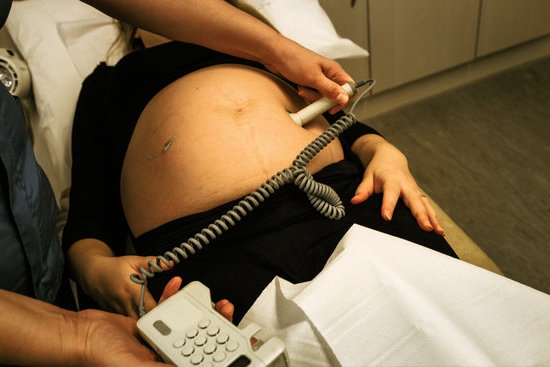When it comes to the topic of pregnancy, there are numerous questions and concerns that may arise, and one common inquiry is whether pre ejaculation can cause pregnancy. In this article, we will delve into the phenomenon of pre ejaculation and its potential impact on pregnancy. From understanding what pre ejaculation is to debunking myths and discussing preventive measures, we aim to provide comprehensive information on this important issue.
Pre ejaculation, also known as “pre-cum,” refers to the clear fluid that may be released from the penis during sexual arousal and before ejaculation. It is a natural occurrence and can happen when a person is excited or aroused. Many individuals wonder about the possibility of pre ejaculation leading to pregnancy, and it is crucial to explore this question in depth.
This article will address the likelihood of pre ejaculation causing pregnancy, as well as the various factors involved in this process. Furthermore, we will examine the scientific aspect of how pre ejaculation can potentially result in pregnancy and dispel any misconceptions or myths surrounding this topic. Additionally, we will discuss contraceptive methods and strategies that can help prevent pregnancy from pre ejaculation, along with emphasizing the importance of open communication with partners about this matter.
What Is Pre Ejaculation? Exploring the Phenomenon and Its Characteristics
Pre-ejaculation, also known as pre-cum or pre-seminal fluid, is the clear, lubricating fluid that is released from the penis during sexual arousal. It is produced by the Cowper’s glands and serves to neutralize any acidity in the urethra caused by residual urine. This helps create a more hospitable environment for sperm as they pass through the urethra. Pre-ejaculate also acts as a natural lubricant during sexual activity.
Characteristics of pre-ejaculation include its spontaneous release at varying points during sexual stimulation. It can occur before full ejaculation and even before penetration. The volume of pre-ejaculate can vary from person to person, but it typically ranges from a few drops to a small amount.
- Clear, lubricating fluid
- Produced by Cowper’s glands
- Helps neutralize acidity in the urethra
- Acts as natural lubricant during sexual activity
It is important to note that while pre-ejaculate may contain some sperm and can therefore potentially lead to pregnancy, it is not a reliable method of contraception. Sperm can be present in the pre-ejaculate due to leftover sperm from a previous ejaculation that remains in the urethra. Moreover, if there has been recent ejaculation prior to engaging in sexual activity, there is a higher likelihood of sperm being present in the pre-ejaculate.
The potential for pre-ejaculation to cause pregnancy underscores the need for individuals to utilize effective contraceptive methods if they are seeking to avoid conception. This includes using barrier methods such as condoms or other forms of birth control to prevent unintended pregnancies. Additionally, open and honest communication with partners about contraception and sexual health is essential for making informed decisions and taking proactive measures to prevent pregnancy from pre-ejaculation.
Can Pre Ejaculation Lead to Pregnancy? Discussing the Likelihood and Factors Involved
Pre ejaculation, also known as pre-cum or pre-ejaculate, refers to the clear, colorless fluid that is released from the male urethra during sexual arousal. This fluid is produced by the Cowper’s glands and serves as a lubricant for the urethra and a neutralizer for any residual acidity from urine in the urethra.
Can Pre Ejaculation Lead to Pregnancy?
The short answer is yes, pre ejaculation can cause pregnancy. While the fluid itself does not contain sperm, it can pick up leftover sperm in the urethra from a previous ejaculation. Additionally, there is also a small chance that live sperm may be present in pre-ejaculatory fluid due to a phenomenon called “sperm leakage.” Sperm leakage refers to when small amounts of sperm are released unintentionally prior to ejaculation.
Understanding the Science: How Pre Ejaculation Can Potentially Cause Pregnancy
The likelihood of pregnancy from pre-ejaculate largely depends on factors such as timing, ovulation cycle of the female partner, and overall fertility. It’s important to note that while the chances of pregnancy from pre ejaculation are relatively low compared to full ejaculate, it is still possible. Furthermore, research has shown that pre-ejaculate may contain enough sperm to fertilize an egg under certain circumstances.
Understanding the Science
Is a Potential Risk of Pregnancy
Factors to Consider
The likelihood of pre ejaculation causing pregnancy depends on various factors such as the presence of sperm in the urethra, the timing of intercourse in relation to ovulation, and other physiological factors. Sperm can survive for several days within the female reproductive system, so even if a man urinates before sex, there may still be viable sperm present in the urethra.
The Role of Contraception
For individuals concerned about the possibility of pregnancy due to pre ejaculation, it is important to consider using contraception. Barrier methods such as condoms are highly effective at preventing pregnancy by blocking pre ejaculation from coming into contact with the vagina. Additionally, hormonal contraceptives and other forms of birth control can provide added protection.
It’s essential for individuals to understand that while the risk of pregnancy from pre ejaculation is lower than full ejaculate, it still exists. Educating oneself and taking proactive measures can help to reduce this risk and ensure that both partners are fully informed and prepared when engaging in sexual activity.
Debunking Myths
There are many misconceptions surrounding pre ejaculation and its potential to cause pregnancy. One common myth is that pre ejaculation fluid does not contain sperm, making it safe from causing pregnancy. However, this is not entirely true. While pre ejaculate (pre-cum) may have fewer sperm than a full ejaculation, it can still contain viable sperm that can lead to pregnancy if it comes into contact with the vagina.
Another misconception is that urinating before sexual activity can flush out any remaining sperm in the urethra, preventing pregnancy from pre ejaculation. Unfortunately, this is also a false belief. Urinating before sex may reduce the number of sperm in the urethra, but it cannot guarantee the absence of sperm in pre-cum. Therefore, relying on urination as a method of contraception is unreliable and should not be used as a sole means of preventing pregnancy.
It’s important to understand that every person’s body and reproductive system are different. While some individuals may have lower levels of sperm in their pre ejaculate, others may have higher concentrations, increasing the likelihood of pregnancy from pre ejaculation. This variability highlights the importance of using reliable contraceptive methods and practicing safe sex to prevent unwanted pregnancies.
| Myth | Fact |
|---|---|
| Pre-ejaculate does not contain sperm | It can contain viable sperm |
| Urinating before sex eliminates risk of pregnancy from pre-ejaculation | Urination cannot guarantee absence of sperm in pre-cum |
Preventing Pregnancy From Pre Ejaculation
Preventing pregnancy is a primary concern for many individuals who engage in sexual activity, especially when pre ejaculation is a factor. It’s important to understand that pre ejaculation does contain some sperm, and as a result, there is a risk of pregnancy. However, there are several contraceptive methods and strategies that can help mitigate this risk.
One of the most effective methods for preventing pregnancy from pre ejaculation is the use of condoms. Condoms act as a barrier method, preventing sperm from entering the vagina and reducing the likelihood of pregnancy. When used consistently and correctly, condoms can be up to 98% effective in preventing pregnancy.
In addition to condoms, other forms of contraception such as birth control pills, intrauterine devices (IUDs), and contraceptive implants can also be used to prevent pregnancy. These methods work by either preventing ovulation, thickening cervical mucus to block sperm, or altering the uterine lining to make it less receptive to fertilized eggs. It’s important for individuals to consult with healthcare professionals to determine which method may be best suited for their needs and lifestyle.
It’s essential for individuals engaging in sexual activity, especially those at risk for pre ejaculation, to have open and honest discussions with their partners about contraception. Additionally, seeking guidance from healthcare providers can provide valuable information on the most effective methods available. By taking proactive measures and utilizing appropriate contraceptive methods, individuals can lower the risk of unintended pregnancy associated with pre ejaculation.
| Contraceptive Method | Effectiveness |
|---|---|
| Condoms | Up to 98% |
| Birth Control Pills | Around 91% |
| IUDs | Over 99% |
The Importance of Communication
Communication is essential in any relationship, especially when it comes to discussing potentially sensitive topics such as pre ejaculation and the risk of pregnancy. Having open and honest conversations with your partner can help ensure that both parties are on the same page regarding the potential risks and how to prevent an unplanned pregnancy.
Here are some key points to consider when discussing pre ejaculation and pregnancy with your partner:
- Be open and honest: It’s important to be transparent about any concerns or uncertainties you may have regarding pre ejaculation and its potential impact on pregnancy. This can help alleviate any anxiety or misunderstandings between partners.
- Discuss contraceptive options: When having conversations about pre ejaculation and pregnancy, it’s crucial to explore and discuss different contraceptive methods that can help prevent unintended pregnancies. This may include using condoms, hormonal birth control, or other forms of contraception.
- Seek professional advice: If you or your partner have questions or concerns about pre ejaculation and its potential impact on pregnancy, seeking guidance from a healthcare provider can provide valuable information and support.
By having open discussions with your partner about pre ejaculation and the risk of pregnancy, you can both work together to make informed decisions about contraception and sexual activity.
Remember that communication is key in any relationship, especially when it comes to sensitive topics like pre ejaculation and pregnancy. Openly discussing these matters with your partner can lead to a deeper understanding of each other’s concerns and ultimately strengthen your relationship.
Conclusion
In conclusion, while the likelihood of pre ejaculation causing pregnancy is relatively low compared to full ejaculation, it is still possible. The presence of sperm in pre ejaculate can lead to pregnancy if it comes into contact with the vagina. It’s crucial for individuals to be aware of this potential risk and take necessary precautions to prevent unwanted pregnancies.
It is important to understand that there are contraceptive methods specifically designed to address the risk of pre ejaculation causing pregnancy. Using condoms, practicing withdrawal method, or using other forms of birth control can help minimize the chances of conception from pre ejaculation. Additionally, open and honest communication with a partner about this topic is essential in making informed decisions about sexual activity and contraception.
Ultimately, by understanding the science behind pre ejaculation and staying informed about contraceptive options, individuals can take proactive steps to prevent unplanned pregnancies. By engaging in dialogue with their partners and healthcare providers, individuals can make empowered choices regarding their sexual health and effectively reduce the risk of pregnancy from pre ejaculation. Taking these measures can provide peace of mind and ensure a more responsible approach to sexual activity.
Frequently Asked Questions
How Likely Is It to Get Pregnant From Precum?
The likelihood of getting pregnant from precum is relatively low but not impossible. Precum itself may contain sperm, especially if there was a recent ejaculation, so it’s important to use protection consistently.
Should I Take Plan B for Precum?
Whether or not to take Plan B for precum depends on the specific situation and one’s level of comfort with risk. Plan B can help reduce the risk of pregnancy after unprotected sex, but it’s always best to use protection to prevent the need for emergency contraception.
Can Single Ejaculation Cause Pregnancy?
A single ejaculation can absolutely cause pregnancy if it occurs during a woman’s fertile window. Sperm can live inside the reproductive tract for several days, so pregnancy can occur even if intercourse happens just before ovulation. It’s important to consider this when practicing safe sex and contraception.

Welcome to my fertility blog. This is a space where I will be sharing my experiences as I navigate through the world of fertility treatments, as well as provide information and resources about fertility and pregnancy.





